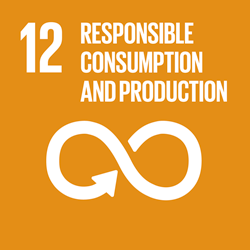Technological watch
Biodegradable Mulching Films Based on Polycaprolactone and Its Porous Structure Construction
Polycaprolactone (PCL) is one of the promising linear aliphatic polyesters which can be used as mulching film. Although it has suitable glass transition temperature and good biodegradability, further practical applications are restricted by the limited temperature-increasing and moisturizing properties. The rational design of the PCL structure is a good strategy to enhance the related properties. In this study, thermally-induced phase separation (TIPS) was introduced to fabricate a PCL nanoporous thin film. The introduction of a nanoporous structure on the PCL surface (np-PCL) exhibited enhanced temperature-increasing and moisturizing properties when used as mulch film. In detail, the average soil temperature of np-PCL was increased to 17.81 °C, when compared with common PCL of 17.42 °C and PBAT of 17.50 °C, and approaches to PE of 18.02 °C. In terms of water vapor transmission rate, the value for np-PCL is 637 gm−2day−1, which was much less than the common PCL of 786 and PBAT of 890 gm−2day−1. As a result, the weed biomass under the np-PCL was suppressed to be 0.35 kg m−2, almost half of the common PCL and PBAT. In addition, the np-PCL shows good thermal stability with an onset decomposition temperature of 295 °C. The degradation mechanism and rate of the np-PCL in different pH environments were also studied to explore the influence of nanoporous structure. This work highlights the importance of the nanoporous structure in PCL to enhance the temperature-increasing and moisturizing properties of PCL-based biodegradable mulching film.
Publication date: 07/12/2022
Author: Ning Yang
Reference: doi: 10.3390/polym14245340






